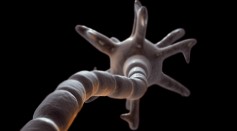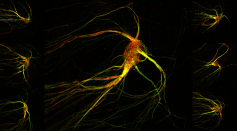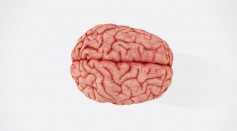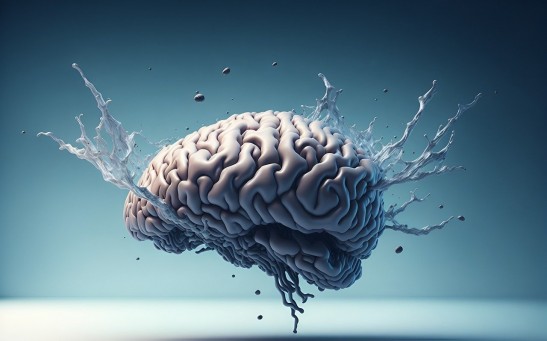brain cells

How Does Alcohol Affect the Brain? Does It Kill Brain Cells?

Mammalian Brain Cells Found to Contain High Mercury Levels; How Do Wild Terrestrial Species Adapt From Neurotoxins?

Origins of Neurons? Brain Cell Building Blocks Could Be Traced Back to Placozoans From 800 Million Years Ago, Study Reveals
Edible Lion's Mane Mushrooms Can Boost Brain Cell Growth, Improve Memory Growth [Study]

Treating Age-Related Hearing Loss Involves Training the Brain to Filter Out Background Noise, Study Suggests

Neural Cartography of Smell: How Olfactory Sense Maps With the Brain Neurons; Here's What Science Says
Brain Cells Can Predict Malaria Parasites in the Blood

Neuronal Gene Expression That Causes Krabbe Disease Discovered for the First Time

Experts Located the Neurons Behind 'Performance Monitoring'

Memory Disorders Treatment for Alzheimer’s Disease, Dementia May Be Possible Soon After Brain Cells Study

Complex Decision-Making Observed in Worms; Accounts Ability of Smaller Life Forms With Lesser Brain Cells
World Stroke Day 2021 Celebrates New Treatments, Healthy Lifestyle to Avoid the Second Leading Cause of Death

Brain Cells Destroyed as Neurons Learn Faster; DNA Breaks May Provide Answer to Genetics

Monkey Brain Revealed in World’s 1st High-Resolution 3D Image; Potential for Treating Human Illnesses
Most Popular

How Technology Is Changing the Real Estate Industry?

How a Plant-Based Diet Can Protect Against Breast Cancer: Insights from Nutrition Research

Study Reveals High Turnover in Scientific Research Careers: What This Means for Future Scientists

Nikolay Karpenko Biography, Photo, Career, Accomplishments






